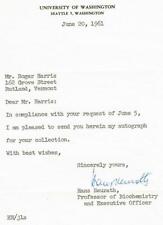
Reporting in the journal Science, researchers from the US and Israel say they have cloned a gene from a variety of wild wheat that dramatically increases the protein, zinc and iron content in the grain; a finding that could go a long way to negating the nutritional deficiencies affecting hundreds of millions of people around the world.
Wheat provides around 20 percent of all calories consumed by humans, so even small increases in wheat’s nutritional value may help offset deficiencies in protein and key micronutrients. But the results from the wild wheat gene are anything but small, delivering up to an astonishing 30 percent increase in some key nutrient measurements.
Interestingly, the researchers found that all cultivated pasta and bread wheat varieties they have analyzed to date have a nonfunctional copy of GPC-B1, suggesting that the gene was lost during the domestication of wheat. According to Dubcovsky, this means that the reintroduction of the functional gene from the wild species into commercial wheat varieties has the potential to increase the nutritional value of a large proportion of our current cultivated wheat varieties. “This discovery provides a clear example of the value and importance of conserving the wild germplasm – the source of genetic diversity – of our crop species,” he added.
A number of breeding programs have already used the GPC-B1 gene to develop varieties which are currently being tested to determine if the introduction of GPC-B1 has any negative impacts on yield or quality. Importantly, the new wheat strains that include the re-discovered gene are not genetically modified organisms. Rather, the GPC-B1 gene is introduced into other wheat varieties using a rapid-breeding technique called Marker Assisted Selection. Dubcovsky said that this should speed their commercial adoption.


















Comments are closed.